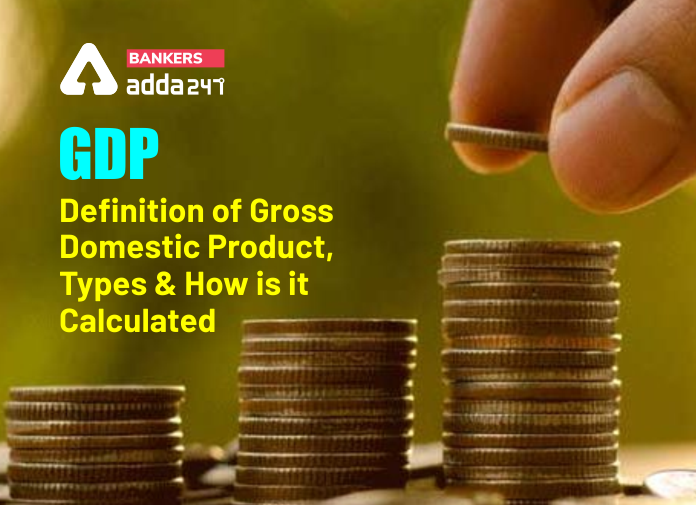Recently, World Bank has released its flagship report titled “Global Economic Prospects (June 2020)” in which it has released the figures related to GDP around the world on several factors. This report basically assesses the impressions of the COVID-19 pandemic and also examines the possible courses and outcomes. The report also gives figures and facts based on an exhaustive analysis of the outlook for emerging market as well as developing economies, hence it investigates the depth and breadth of the economic and humanitarian storm. Some of the figures related to GDP are as given below:
| How To Crack Bank Mains Exam In First Attempt? | How To Crack Bank Prelims Exams In First Attempt? | Phrase Replacement: Tips And Tricks And Questions With Example |
“Global Economic Prospects Report of various economies :
- A Global GDP of 5.2% in 2020. i.e. the deepest global recession in eight decades that the world has witnessed.
- India’s GDP is expected to contract by 3.2% in 2020, while it is expected to expand by 3.1% in 2021.
- Advanced Economies GDP is expected to contract by 7% in 2020.
- US’s GDP is expected to contract by 6.1% in 2020.
- Japan’s GDP is expected to contract by 9.1% in 2020.
- Emerging market and developing economies (EMDE) GDP is expected to contract by 2.5% in 2020.
- China’s GDP is expected to become slow by 1.0% in 2020.
- Russia’s GDP is expected to contract by 6% in 2020.
Now that you know that how you can estimate the current economic situation of a country with the help of GDP. In this article, we will be diving in deep into this topic to understand the basics about it and also the difference between GDP & GNP.
A related but different metric, the gross national product (GNP), is the value of all finished goods and services owned by a country’s residents over a period of time.
What Is GDP?
Gross domestic product (GDP) refers to the value of a nation’s finished domestic goods and services during a specific time period. GDP is used to measure the economies of the global nation and compare their progress instead of GNP. It gives an in-depth knowledge of the health of a nation.
Private consumptions or consumer spending, government spending, government spending, capital spending by businesses, and net exports—exports minus imports are used to Calculate GDP. Here’s a brief overview of each component:
- Consumption: This is the largest part of the GDP and it is the value of the consumption of goods and services acquired and consumed by the country’s households.
- Government Spending: This refers to all consumption, investment, and payments made by the government for current use
- Capital Spending by Businesses: This refers to spending on purchases of fixed assets and unsold stock by private businesses
- Net Exports: This basically represents the country’s balance of trade (BOT), where a positive number bumps up the GDP as country exports more than it imports, and vice versa
Banking Awareness: For All Banking Exams
Why GDP Is Used As A Parameter?
GDP is used as a parameter to measure the health of an economy across the globe it can be broken up into two categories—real and nominal. Now, a country’s real GDP refers to the economic output after inflation is factored in, while nominal GDP refers to the output that does not take inflation into account. Nominal GDP is usually higher than real GDP because inflation is a positive number. It is used for comparison purpose between different quarters in a year.
It is also used as a parameter to compare the performance of two or more economies, acting as a key input for making investment decisions in a country. Based on GDP, government draft policies to drive local economic growth.
Practice with,
If the GDP rises of a country, it means the economy is growing and the same is true for the other way also. If the GDP of a country is growing to the point where inflation builds up, a country may reach its full production capacity. It is the duty of a central banks then to step in, tightening their monetary policies to slow down growth.1 When interest rates rise, consumer and corporate confidence drops. During these periods, monetary policy is eased to stimulate growth.
Click Here to Register for Bank Exams 2020 Preparation Material
Visit Achieversadda.com and participate in discussions with other aspirants and achievers. Get answers to your queries and connect with others on Achieversadda.com
| SBI PO 2020 | IBPS PO 2020 | SBI Clerk 2020 | IBPS Clerk 2020 |
| RBI Grade B 2020 | RBI Assistant 2020 | LIC AAO & AE | SEBI Grade A 2020 |



 Weekly Current Affairs One Liners 23rd t...
Weekly Current Affairs One Liners 23rd t...
 CSIR CRRI Typing Test 2025 Date for JSA ...
CSIR CRRI Typing Test 2025 Date for JSA ...
 Can Final Year Students Apply for SBI PO...
Can Final Year Students Apply for SBI PO...


